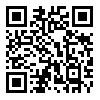مجله رویش روانشناسی از دادن گواهیهای کاغذی معذور است. لطفا تقاضا نکنید. همه گواهی ها در صفحه شخصی کاربران موجود است.
year 13, Issue 4 (summer 2024 2024)
Rooyesh 2024, 13(4): 215-224 |
Back to browse issues page
Download citation:
BibTeX | RIS | EndNote | Medlars | ProCite | Reference Manager | RefWorks
Send citation to:



BibTeX | RIS | EndNote | Medlars | ProCite | Reference Manager | RefWorks
Send citation to:
Gholami N, Zeinaddini Meymand Z, Rabbani Z. (2024). The Psychometric Properties of the Persian Version of Academic Boredom Scale and its Relation with Academic Motivation. Rooyesh. 13(4), 215-224.
URL: http://frooyesh.ir/article-1-4931-en.html
URL: http://frooyesh.ir/article-1-4931-en.html
1- M.A. of psychometrics, Department of Psychology, Islamic Azad University, Central Tehran Branch,Tehran, Iran.
2- Assistant Professor, Department of Curriculum Planning, Islamic Azad University, Kerman Branch, Kerman, Iran.
3- Assistant Professor, Department of Psychology, Islamic Azad University, Eslamshahr Branch,Tehran, Iran. ,rabbany2007@gmail.com
2- Assistant Professor, Department of Curriculum Planning, Islamic Azad University, Kerman Branch, Kerman, Iran.
3- Assistant Professor, Department of Psychology, Islamic Azad University, Eslamshahr Branch,Tehran, Iran. ,
Abstract: (1496 Views)
The purpose of this research was to investigate the psychometric properties of the academic boredom scale and its relationship with academic motivation in students. The present research method was descriptive, validation type. The statistical population of research was male students of the second secondary level in District 5 of Tehran, in 1401-1402. A sample of 396 people was selected from this population by a two-stage cluster method. Participants completed the Academic Boredom Scale (ABS) (Pekrun et al., 2002) and the Academic Motivation Questionnaire (AMQ) (Lapper et al., 2005). Data were analyzed by confirmatory factor analysis (CFA), Cronbach's alpha, and Pearson's correlation coefficients. The results of the confirmatory factor analysis showed that the academic boredom scale has 22 items and two components classroom boredom and learning-related boredom. The fit indices of the confirmatory factor analysis confirmed the appropriate fit of the model. There was a significant negative relationship between the academic boredom scale and academic motivation (p<0.01). Cronbach's alpha coefficients for the factors of classroom boredom and learning boredom related to learning and the whole scale were obtained as 0.86, 0.88, and 0.93, respectively. Therefore, the Persian version of the academic boredom scale has favorable psychometric properties among Iranian students and can be used.
Type of Article: Research |
Subject:
Educational Psychology
Received: 2023/10/31 | Accepted: 2024/04/19 | ePublished: 2024/06/30
Received: 2023/10/31 | Accepted: 2024/04/19 | ePublished: 2024/06/30
Send email to the article author
| Rights and permissions | |
 |
This work is licensed under a Creative Commons Attribution-NonCommercial 4.0 International License. |





